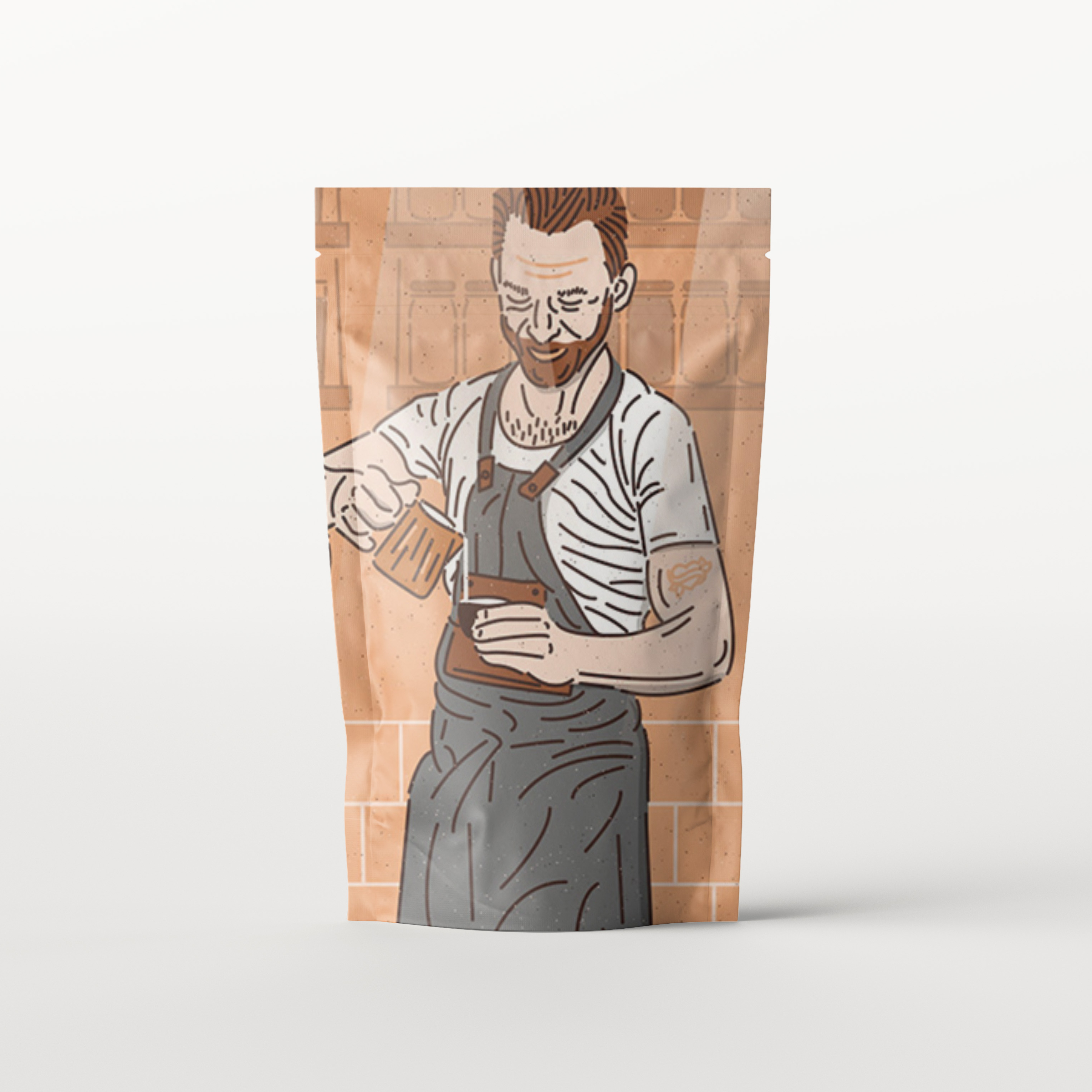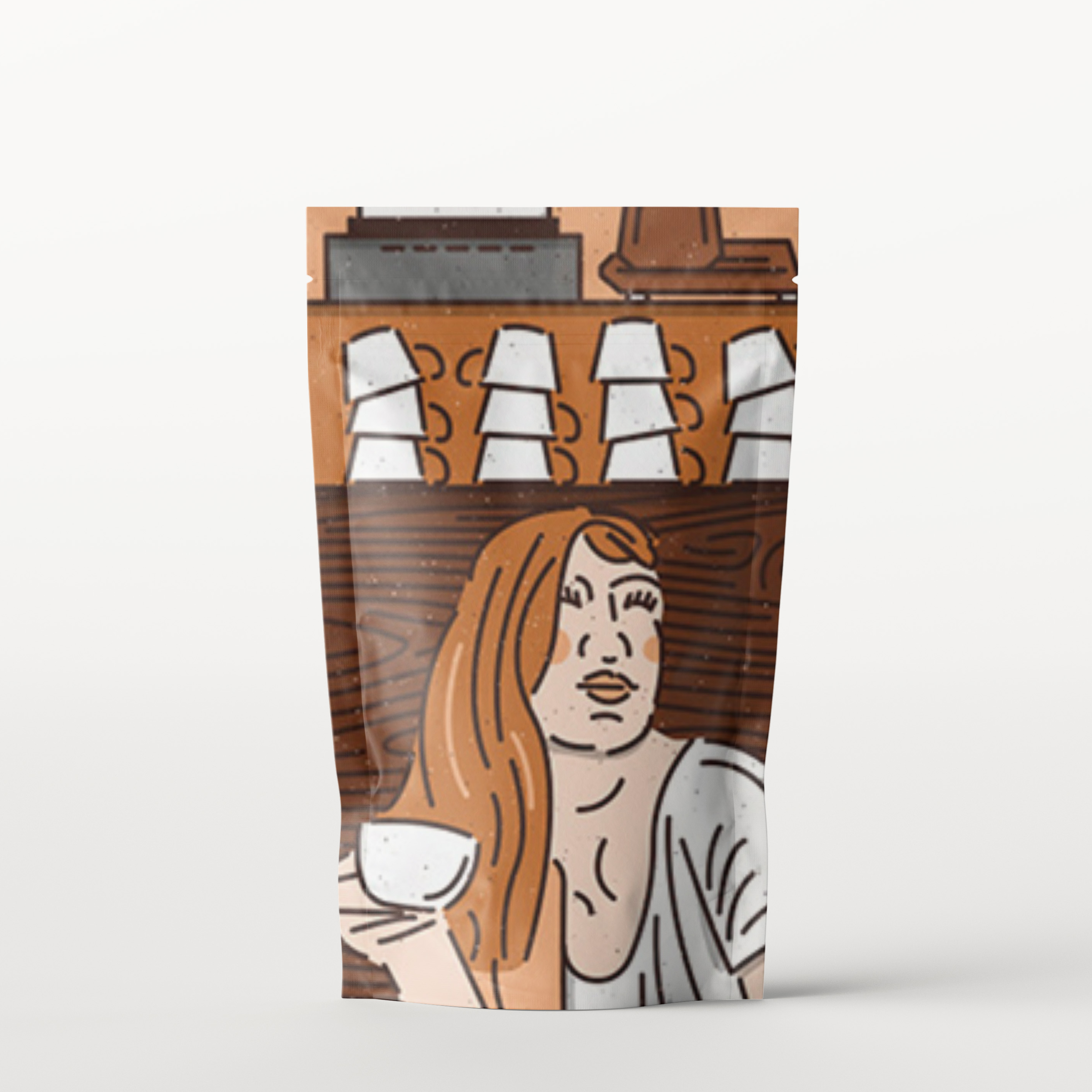Can coffee beans be frozen?
- Categories:Industry News
- Author:Jake
- Origin:
- Time of issue:2021-12-10 15:44
- Views:
(Summary description)In this post, you will learn can coffee beans be broken
Can coffee beans be frozen?
(Summary description)In this post, you will learn can coffee beans be broken
- Categories:Industry News
- Author:Jake
- Origin:
- Time of issue:2021-12-10 15:44
- Views:
Freezing coffee beans to maintain freshness is a storage method that continues to be controversial among professional roasters.
Those who discourage the method claim that freezing affects the quality of the coffee beans, from the flavor to the moisture content. Proponents, on the other hand, say it is a very effective method of long-term storage that helps slow the release of carbon dioxide and prevents oxidation.
1. Why freeze coffee beans?

Heat, light, oxygen and humidity are coffee's worst enemies. They damage coffee beans' organic cellular structure, alter their water content, and encourage bacterial growth. This causes the coffee to lose its flavor and freshness, and shortens its shelf life considerably.
However, keeping coffee free of these elements can be difficult and expensive, especially if you intend to store it for a long time.
George Howell is the founder of Boston-based George Howell Coffee. He first started freezing coffee beans about twenty years ago, and is still a proponent of freezing to maintain the best quality of coffee beans.
"I find that just a day after I open a bag of coffee and expose it to oxygen, it has lost a lot of freshness," he explains. "You can't simply put it in a container and remove the oxygen and preserve it like wine; Because carbon dioxide is released from fresh coffee, it may counteract any sealing vacuum that is already being used.”
"Freezing coffee beans, on the other hand, suspends the exchange of air."
One of the reasons that freezing is so effective in preserving coffee beans is that it prevents oxygen from penetrating into the cellular structure of the beans by slowing down the rate of exhaust.
When coffee beans are roasted, the beans absorb large amounts of carbon dioxide (CO2), which is released over the next few days and weeks. However, if the CO2 content is below the "optimal" level, the coffee loses flavor and becomes flat.
A team of researchers who analyzed the effects of frozen coffee found that storing coffee beans at sub-zero temperatures effectively extended their shelf life and freshness from three months to a year.
They studied samples of freshly roasted coffee stored at 35°C and -25°C and concluded that the degassing rate of coffee beans stored at -25°C was significantly slower.
easebig craft - one stop bamboo products supplier
"[Frozen coffee beans] can retain its flavor, extend shelf life, improve sustainability, and have a huge impact on the industry as a whole," says Hugh Kelly, a member of the research and development team at ONA Coffee in Melbourne.
"It allows us to completely shut down the cellular activity in coffee particles. This means we can capture or lock on the peak flavor window of coffee, freeze it at that point and stop the coffee from spoiling, "he added.
But not everyone agrees that freezing coffee beans is a good way to store them. The National Coffee Association (NCA) says that because coffee beans are hygroscopic, they absorb moisture from the air. Consumers need to consider that moisture in the fridge may also be affecting their coffee beans. Taking coffee beans in and out of the fridge repeatedly can cause condensation, which makes coffee tasteless.
If you still decide to freeze coffee beans, the NCA recommends quickly removing the beans you need in no more than a week and returning the rest of the coffee to the fridge before any condensation forms.

2. Freezing or grinding at room temperature?
A common argument about freezing coffee beans is when to grind it.
Some people believe that the colder the beans are ground, the better the coffee will taste. This is because when the grinder disc gets hot, the amount of fine powder decreases and becomes uneven.
A lower total surface area usually results in coffee that tastes sour, uneven and under-extracted when brewed.
Therefore, these people believe that grinding frozen beans keeps the temperature of the mill cool, which leads to greater evenness and a more even extraction, resulting in a better flavor of the final coffee.
According to an article in Daily Coffee News, Proud MaryCoffee Roasters in Oregon is now freezing all of their raw and roasted coffee beans after getting better results from grinding frozen coffee beans.
"Using one of our high-end light roasted Brazilian beans, we get much more clarity, character and flavour from frozen coffee samples than at room temperature," says Nolan Hirte, founder of the company.
share knowledge on movies & tvs
Others, however, avoid grinding frozen coffee and insist it's best to wait until it thaws to room temperature.
A study by Compound Coffee Company found that their Ethiopian Cochere coffee had the highest extraction rate when frozen coffee beans were brought to room temperature before grinding.
Extraction rate is how much coffee (by weight or percentage) is dissolved in the water in which it is brewed. The extraction rate of ground coffee calculated at room temperature was 22.56%, while that of frozen ground coffee was 22.45%.
While both coffees are floral, sweet and round, leaving the coffee at room temperature before grinding does not create bitterness, while ground frozen coffee has a slightly bitter finish.
3. Best practices for freezing coffee beans
If you decide to freeze your coffee beans, there are several different factors that need to be considered beforehand.
To keep the coffee at its freshest, the beans should be frozen before they reach their optimal flavor. This depends on a range of factors, from roasting to the density of the coffee beans.
It is also recommended to divide the large amount of coffee beans into small packets before freezing. This is to avoid exposing large amounts of coffee beans to oxygen, which can cause them to spoil. Coffee roaster Scott Rao recommends putting the beans in a Ziploc bag and freezing them by the batch, rather than putting a large number of beans together in the refrigerator.

